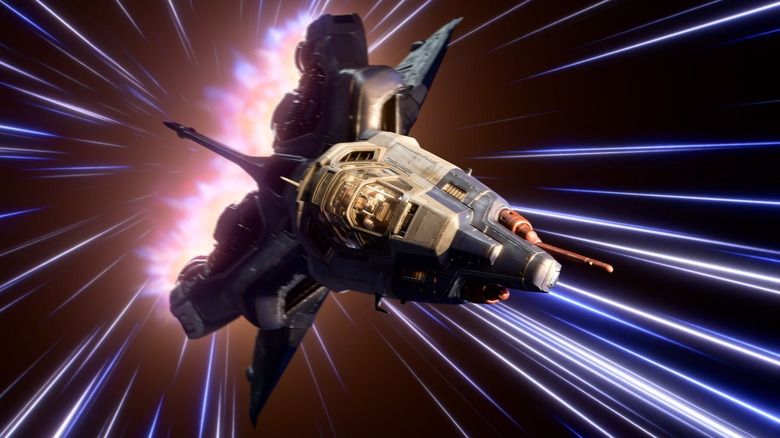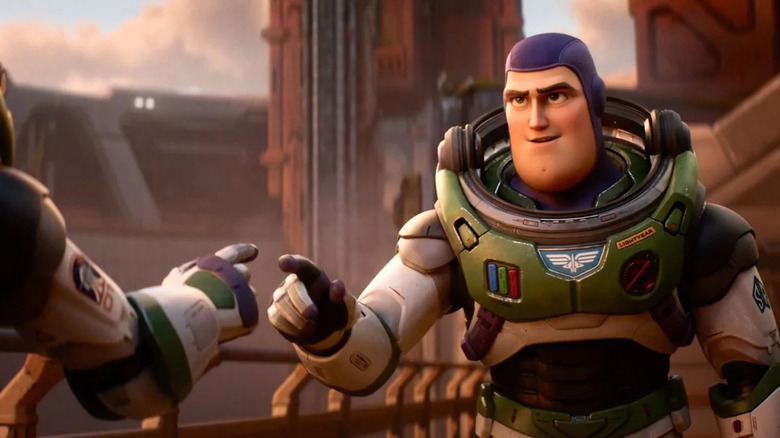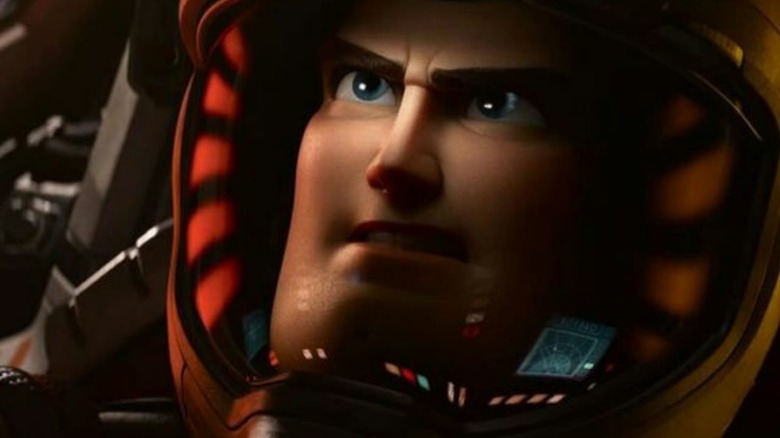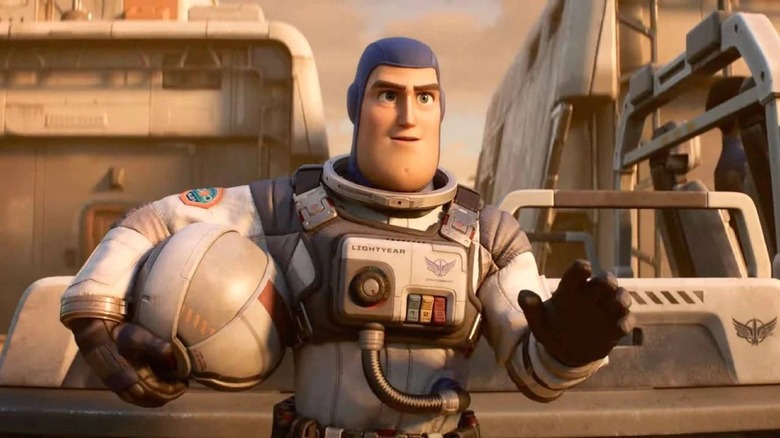Lightyear Composer Michael Giacchino On The Unique Challenges Of Making Music During Lockdown [Interview]
Composer Michael Giacchino is one of the hardest working people in Hollywood today. In 2022 alone, he is the credited composer on not only "Lightyear," but "The Batman," "Jurassic World Dominion," and the upcoming "Thor: Love and Thunder." This was after deftly handling the musical juggling act of "Spider-Man: No Way Home," which incorporated Danny Elfman's, James Horner's, and Hans Zimmer's "Spider-Man" themes into his own. He has scored myriad other high-profile films besides, including superhero films, more than one "Mission: Impossible," "Star Trek" and "Star Wars" movies, and multiple Pixar projects. Giacchino is masterful at making emotional scores that sink comfortably into the background, as well as the bright, bold, hummable scores of a generation past (his funereal score for "The Batman" is equal parts Danny Elfman and Hans Zimmer, but also entirely his own).
"Lightyear," a film that has escaped from within the "Toy Story" universe, depicts the "live action" life of Space Ranger Buzz Lightyear. By design, it is a recognizable, familiar sci-fi film that a 10-year-old might fall in love with and be inspired to buy the toys from.
The score for "Lightyear" is evocative of all the glorious sci-fi films that Giacchino saw in his youth (he's 54), with a bright, adventurous tone befitting a star-streaked space thriller. /Film recently sat down with Giacchino to discuss his influences, when he rests (if ever), and the unique challenges of putting together a film score in the midst of Covid-related lockdowns.
The separated orchetra
Congratulations on the 50th film you've scored just this year.
[Laughs] Yeah.
When do you rest?
Well, yeah, on the surface, it looks like an awful lot of work. And it is an awful lot of work. But you have to remember, most of it was written at a time when we weren't allowed to go anywhere. Everyone was locked down at home. So, I had nothing to do but work at the time. So I was like, "Well, what else am I going to do? I'm going to have another drinking Zoom with friends? I got to do something else." So unfortunately and fortunately, I was able to have the time to do them all. So yeah. So it's been a nutso year, that is for sure, for everybody.
If you were working under lockdown, how did it change your music-making process?
It changed everything because we realized we were not going to be able to record these things the way we would normally record them. I like to have the whole orchestra in the room together and really work the performance that way. But that was not going to be allowed. If we were even allowed to record, everyone had to be separate. So you couldn't have the strings with the brass or the brass with the woodwinds. You couldn't do any of that. Everything was done separately. So, you would have a day where the strings would come in and normally, they would all be close to each other so they could hear each other and play with each other, play against each other. Everyone had to be completely separated, 6 to 10 feet apart. So even if you wanted the full orchestra in the room, they would never have fit the way the distance had to happen.
Woodwinds in plastic boxes
Woodwinds had to have all of this plastic in front of them. The brass had to be surrounded in plastic shower curtains. So not only did you have those obstacles, they couldn't even hear each other or even watch the body language of someone else playing.
So it was very difficult and it took three to four times longer than it normally would, if we'd just went ahead and done it. Normally, something we could do in five days, suddenly it was taking us 15 to 18 days to do. So it was a laundry list of technical challenges that needed to be thought out, figured out, and overcome. And "Lightyear" was broken up into different recording sessions over the last year. So the first time we did it, it was sort of like, "Okay, this is working," and then you listen to it, and you're like, "Wait, we didn't ..." And then the next round, you're like, "Let's go redo those cues," because we learned a lot from that first session. And then you're applying that to all the other movies you're working on too ... so it's just a massive learning curve to catch up on. So yeah, it was unlike any other year of recording that I've ever had.
When you're working under those circumstances, do you find that you had to start composing differently? Or were you simply trying to assemble a Michael Giacchino score under adverse conditions?
Yeah. It was more that, more the latter. The writing itself was what I would normally do anyway. And I would sit down and I'd write and you do that. But once you're coming out of the writing phase, that's where things started getting hairy because that's where you're like, "Oh, wait, how are we going to do this?" Or, "How are we going to do that?" And it just became an endless list of problems to solve. But thankfully, the writing side of it was the way it always is. And I get to sit, think about the characters, think about the story and try and write something that reflects that.
Embracing the past
About the writing: "Lightyear" is an old-fashioned science fiction picture that's reminiscent of a lot of older science fiction. How do you deal with those influences, especially given that you've worked on "Star Trek" and "Star Wars?"
I embraced every ounce of it. I embraced every ounce of my childhood, growing up loving "Star Trek," loving "Battlestar Galactica," loving "Star Wars," loving, whatever, "Aliens," all of these movies that came out at a time that I feel so lucky to have been alive during. Because it was a barrage of original ideas being thrown at us year after year after year after year. And it was great. So this is sort of a culmination of all of those experiences and all the things that I love.
So I was able to just pour it all into this. And since we were separate from the other "Toy Story" universe, there wasn't anything to have to hang on there, either. We could just do whatever we wanted and head in a direction that felt right for the movie. So I think everything, and when you watch the movie, too, you can see the influences of the filmmakers, especially [director] Angus [MacLane], who also loved all these movies. He and I have had millions of geeky conversations over the years about this stuff. And now to be able to make one together, it takes those conversations to a whole new level. So it was fun.
And there is definitely a moment in the opening of "Lightyear" that, if you're a "Star Trek" fan, especially the original series, you'll get a kick out of something. It's small things, but if you love it the way I do, it'll mean something to you.
"Lightyear" will be in theaters on June 17, 2022.



